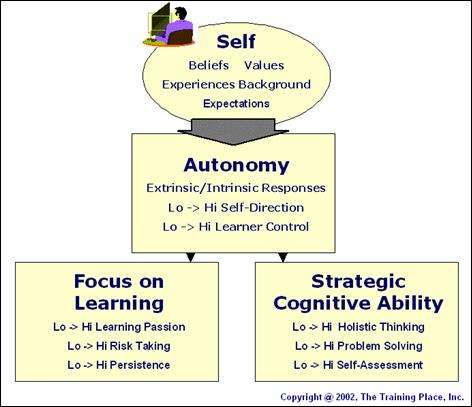|
This research uses the
study of the brain to explain individual learning differences
and personalized learning from a highly conative and affective perspective. Neuroscience
research identifies the dominant impact of brain activity
in the brain's emotional center (limbic system).
This research provides specific guidelines and strategies
for supporting learners with more individualized
solutions. Once a learner's approach and learning ability are
identified, more cost-effective solutions (subsets
targeted for specific needs) can be adapted and individually presented to meet
current learning ability, as well as foster
improvement in the measurable domain of online learning
ability (e.g., goal-setting, task sequencing, reflection,
progress monitoring, etc.).

Much of the
learning orientation research uses the
neuroscience and biological foundations offered by these researchers and
others:
1. James E. Zull (The Art of Changing the Brain
[URL:
http://www.cwru.edu/artsci/biol/zull.htm]
2. Joseph Ledoux (Synaptic Self)
[URL: http://www.cns.nyu.edu/home/ledoux/]
3. Eric Kandel (Nobel Peace Prize winner)
[URL: http://www.erickandel.org/erickandel/]
4. Other brain related articles are available at:
[URL:
http://www.trainingplace.com/newsletter/brainsarticles.htm]
|

